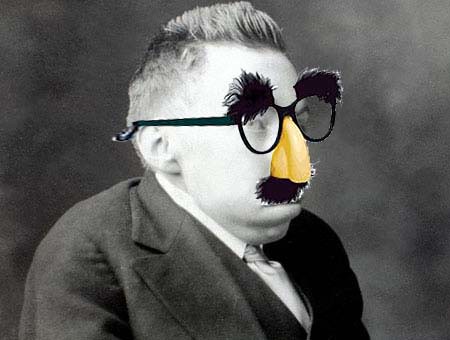But there's been no movie, no documentary and, until now, no book. Before this new tome, I'm pretty sure Replacements literature went no further than a chapter in Azerrad's indie rock book and Colin Meloy's 331/3 book. Jim Walsh feels that he's just the guy to rectify this gap in the canon, and he's probably right. As a longtime friend of the band members, Walsh's credentials are impeccable: he claims to have attended their first ever show. He was also the eulogist at lead guitarist Bob Stinson's funeral. So far, so good
Walsh chooses to go the oral history route here, meaning that, apart from the introduction and a few other pages, the text in composed entirely of quotes from people who were there. I rather like this style of biography when it's done right. Clinton Heylin is a master of the form, but he uses the quotes to augment his own prose, rather than letting them carry the narrative alone. The latter form can be tricky, as certain threads of the story can become disjointed and key details can be omitted.
But I'll get to that in a minute. Walsh's first problem comes early on, when he tries to describe how great the Replacements were live. Not possible. He describes shows during which the band were too drunk to remember their own songs, so they played a bunch of covers but kept quitting them all after the first chorus, as life-affirming, classic performances. I don't doubt they were fun shows, particularly if you were as drunk as the band, but you probably had to be there. Walsh is so effusive about the band's greatness that skepticism and weariness have set in by the time the oral history part begins a few pages in.
Now for the real problem. Say you were writing an oral history of a band. Who would you interview? Who might be at the top of your list? If you were writing a book about, for instance, the Replacements, do you think you'd interview, say... frontman Paul f—king Westerberg?!? Well, Westerberg didn't want to be interviewed for the book, so Walsh figured he'd just go ahead without him. Ditto bassist Tommy Stinson. And drummer Chris Mars, who was polite enough to email Walsh a single paragraph for inclusion in the epilogue. And with Bob Stinson having settled in on a great barstool in the sky, that leaves exactly zero original members of the band who agreed to be interviewed. Zero.
Walsh gamely tries to include their voices by including quotes from old magazine articles and such (which makes the verb tenses shift awkwardly from quote to quote), but at this point the project is pretty much over before it starts. This leads to another problem: about a third of the text in the whole book is from old magazine articles, making me think Walsh didn't get nearly enough material even from the people whom he did manage to interview. This is borne out by the way certain oft-told tales about the band are skimmed over with frustratingly sparse detail. There are a few conflicting mentions of the time Westerberg allegedly told newly clean-and-sober Bob to drink or get off the stage, but no indication as to what Walsh knows (or whether he believes it). Given that Bob fell off the wagon soon after and eventually died of drug-related causes, it's kind of an important detail. The story of the band stealing their master tapes from the label's office and throwing them in the Mississippi River is barely mentioned; even if it's just a myth, it's well-known enough that it needs to be examined in some detail.
My theory as to what went wrong goes like this: Walsh is a fanatical believer who's been dying to write this book for years. He gets the go-ahead (and probably an advance) from a publisher before ensuring the band's cooperation. When they decline to participate he decides to go ahead with it anyway. The result is flimsy and half-assed; the large typeface and copious pictures don't help its credibility much.
Walsh is obviously passionate and, lack of journalistic objectivity aside, probably more qualified than anyone to write this book. It's a shame the band wouldn't help him out. The Replacements' story remains one of the great sagas in American rock n' roll and, unfortunately, has yet to be properly told.

No comments:
Post a Comment